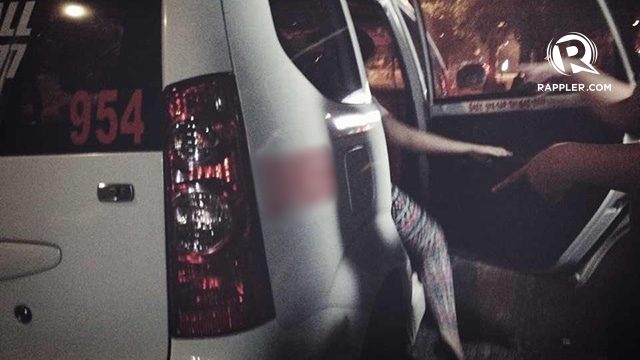SUMMARY
This is AI generated summarization, which may have errors. For context, always refer to the full article.

MANILA, Philippines – Refused a ride on a taxi because “there’s heavy traffic” or because you wouldn’t agree to pay an extra P50? It’s payback – heavier fines and sanctions await the owners of these cabs.
According to the a joint administrative order issued by the Department of Transportation and Communications (DOTC), Land Transportation Franchising and Regulatory Board (LTFRB), and Land Transportation Office (LTO), operators of public buses, jeepneys, taxis, vans, sedans, can be fined up to P15,000 for violations such as:
- refusal to render service to the public or convey passenger to destination
- overcharging or undercharging of fare
- failure to provide proper body markings
- inability to present franchise or certificate of public convenience (CPCs) upon apprehension inside vehicle
- employing reckless, insolent, discourteous, or arrogant drivers
- allowing unauthorised driver to drive a PUB or allowing a driver to operate a PUV without a driver’s license
- operating a vehicle with defective parts and accessories
- failure to provide a fare discount to those entitled under existing laws
- not providing the LTFRB with the complete, correct, and updated operator’s information
- not displaying the “no smoking sign,” or allowing personnel to smoke inside vehicles
- tampered or defective taximeter or operation without or with an old seal
- using a tampered, broken, reconnected or fake taximeter
- using a different colour scheme or design from that approved by the LTFRB (buses and taxis only)
- using an unregistered or unauthorized business name (buses and taxis only)
- no panel routes (jeepneys, buses, PUVs)
- no sign board (jeepneys, buses, PUVs)
- picking up and dropping passengers outside of designated terminals (jeepneys, buses, PUVs)
- carrying of illegal and/or prohibited cargoes
- failure to provide fire extinguisher and required “stop” and “go” signage for the use of each vehicle (STS only)
- trip cutting (jeepneys, buses, PUVs)
- failing to display fare matrix (jeepneys, buses, PUVs)
- breach of franchise conditions under the 2011 revised terms and conditions of the CPCs
Owners of franchises found to have incurred those violations face a P5,000 fine for the first offense; a P10,000 fine and the impounding of the vehicle for 30 days for the second offense; and a P15,000 fine plus the cancellation of the certificate of public convenience (CPCs) where the unit is registered for the third and subsequent offenses.
The joint administrative order will take effect on June 19, or 15 days after the DOTC publishes the order in two newspapers of general circulation on Wednesday, June 3.
Higher fines await franchises that fail to display the International Symbol of Accessibility inside the units or do not designate specific seats for the use of persons with disabilities.
Franchises face a P50,000 fine for the first offense; a P75,000 fine and the impounding of the unit for 45 days plus a P500/day impounding fee for the second offense; and a P100,000 fine plus the cancellation of the CPC for the third and subsequent offenses. The same fines away those who refuse to transport persons with disabilities.
According to the joint order, violations will be counted against an operators’s CPC and not a particular vehicle. It means separate offenses by several vehicles of the same operator registered under the same CPC will be counted a first, second, and subsequent offenses.
The order also lists down violations and fines connected to licenses, vehicle registration and operation, vehicle specifications, and other general provisions. Read the document in full here:
Passengers who fall victim to errant public vehicle drivers and companies should file a complaint before the LTFRB, which regulates and approves the franchises awarded to operators.
The LTFRB told Rappler in a previous interview that many abusive public vehicles go scot-free because complainants themselves fail to show up during scheduled LTFRB hearings. – Rappler.com
File a complaint before the LTFRB here, the Board’s hotline and email address can be found here.
//Add a comment
How does this make you feel?
There are no comments yet. Add your comment to start the conversation.